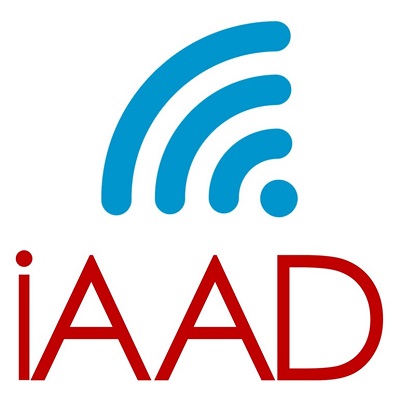
İstanbul Avrupa Araştırmaları Derneği (IAAD)
İstanbul Avrupa Araştırmaları Derneği (IAAD) is established under the form of not for profit Civil Society Organisation (CSO). Its main activities are organised in three spheres: Education and Training, Societal Challenges, and innovation and technology.
IAAD plan and implement an average of 20 activities per year on a regular basis.
Personnel – Four (4) permanent staffs and two (2) non-permanent, part-time staffs, seven (7) associated partners at national level, and 17 experts at EU level.
Target groups – Youth (15-29 years old) and Youth Workers essentially, juveniles (10-13 years old), and adults, more particularly people with Special Education Needs (SEN), NEET, people with fewer opportunities or at risk of marginalization.
R&D, Technology and Innovation – IAAD may engage as non-key expert in surveys and research developments in a series of fields in cooperation with research institutes, universities, enterprises and other related bodies. IAAD is at the interface between the scientific field, the civil society, and a series of economic sectors, driven by education and training, R&D and entrepreneurship, addressing EU Societal Challenges such as:
1) economy (circular, collaborative, bio, grey, blue);
2) societal (innovation, interface with science);
3) employment (gender, inclusion, women, NEET, migrants);
4) Social Science and Humanities (SSH);
5) technology/innovation to improve citizens' daily life (IoT, transports, education, communication).
Societal challenges – IAAD promotes initiatives addressing H2020 Societal Challenges in the fields of Social Innovation Research, Socio-Economic Sciences and Humanities and Inclusive, Innovative
and Reflective Societies (IIRS):
- international cooperation;
- survey and research in cooperation with SSH key actors at EU level;
- theoretical and applied research in policy studies;
- impact assessment;
- quality assurance, monitoring and evaluation;
- capacity building programmes;
- stakeholder engagement;
- communication and dissemination.
The main aim of IAAD's engagement in SSH initiatives is to raise-awareness on innovations as key drivers to strengthen social cohesion and lower social inequalities.
Migrants/refugees inclusion, cultural heritage and traditions – IAAD promotes specific inclusion programmes targeting the migrant population. Initiatives aim at assisting local and regional communities to increase employability with tailored learning programmes, innovative community development models (community cooperatives), promoting and supporting the capitalization of experiences from elderly generations, linking them with Youth and the ICT sphere. Access to finance – IAAD develops a series of initiatives to support active citizen’s and Youth’s access to finance through a cooperative model in which each cooperant act as an investor, inspired BY similar models conceptualized in water.org (Gary White) and 826 National (Dave Eggers).
Innovation and technology (ICT) – IAAD foster ICT-based development and implementation of a variety of conceptual approaches such as Circular Economy and Bio Economy, involving renewable energies, Environment conservation and protection, sustainable development programmes, agriculture and natural resources conservation. ICT-based approaches and tools are key features in all IAAD’s initiatives, involving basic tools such as the Internet (Moodle, YouTube, Skype, Google Tools, Mobile Applications), and the internet of Things (connected object). IAAD’s ICT programmes includes: a) learning activities; b) effective work placements and apprenticeship; c) structured networking with the world of work and policy-makers; d) observatory of best practices on sustainable development policies oriented to labour market demand; e) transfer of innovation with exchange of good practices; f) policies recommendations; g) diffusion at the broadest EU level of effective best practices, case studies and strategies validated.
European background – Europe 2020 agenda; Europe 2020 Societal Challenges priorities such as migration, integration and demographic change, de-radicalisation, drug and other addiction, crime and violence, employment and new growth, culture and citizenship, global justice and stability, and more globally to reverse inequalities; the Paris Declaration on promoting citizenship and the common values of freedom, tolerance and non-discrimination through education.
Quality system – All IAAD’s development programmes are design with a Logical Framework Approach (LFA), and Result-Oriented Monitoring (ROM), using a set of tools and assigned staffs described in the “Project Management and Implementation Handbook” (PMIH). The PMIH encompasses the following key features for evaluation of quality levels: 1) the process; 2) the results; 3) the participants; 4) the dissemination; 5) the impact.



